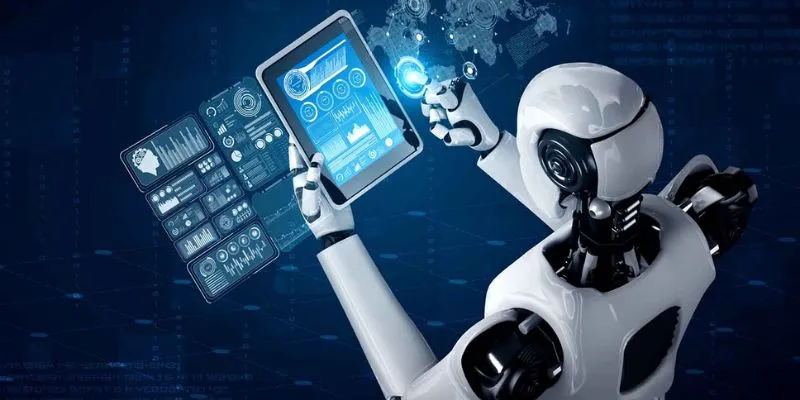Artificial Intelligence involves the simulation of human intelligence by machines, enabling them to perform tasks such as decision-making, problem-solving, and learning. When applied to software testing, AI automates repetitive tasks, identifies defects, and ensures robust testing processes with increased accuracy and efficiency. If you’re passionate about becoming an expert in testing, a Software Testing Course in Chennai might be the perfect step forward. By understanding AI’s role in this field, you’ll stay ahead in an ever-changing tech landscape.
How AI is Transforming Software Testing
1. Automated Test Case Generation
Traditional software testing often involves manually writing test cases, which is time-consuming and error-prone. AI streamlines this process by analyzing the application and generating relevant test cases automatically.
This not only speeds up testing but also ensures comprehensive coverage, catching issues that might have gone unnoticed otherwise.
2. Smarter Bug Detection
One of AI’s biggest strengths is pattern recognition. AI algorithms can analyze historical testing data to predict and identify potential defects. By continuously learning from past bugs, AI becomes more accurate in detecting issues, even in complex software systems.
This predictive capability makes it easier for testers to focus on high-priority areas, enhancing overall software quality. To explore how AI algorithms work, a Software Testing Course in Bangalore provides hands-on training in this exciting area.
3. Enhanced Regression Testing
Regression testing ensures that new code changes do not break existing functionality. However, it can be tedious to execute these tests repeatedly. AI optimizes regression testing by identifying which test cases are most likely to uncover defects, reducing redundancy and saving time.
4. Improved Test Maintenance
Software is constantly evolving, and test scripts often need updates to keep pace with changes. AI-based tools can adapt to these changes automatically, reducing the need for manual intervention. This makes test maintenance more manageable and efficient.
Also Check: Artificial Intelligence is transforming Cloud Computing
5. Accelerated Test Execution
Speed is crucial in today’s agile development environments. AI-powered tools can execute multiple test cases simultaneously, significantly reducing testing timelines without compromising accuracy.
This capability ensures faster feedback loops, enabling development teams to deliver high-quality software quickly—a key advantage for companies striving to stay competitive.
Real-World Applications of AI in Software Testing
1. Chatbots and Virtual Assistants
AI-driven chatbots are being used to assist testers by answering queries, suggesting solutions, and automating repetitive tasks. This improves productivity and allows testers to focus on strategic aspects of testing.
Also Check: Continuous Testing in Software Development
2. Visual Testing
AI excels at visual recognition, making it highly effective in testing user interfaces (UIs). It can detect discrepancies in visual elements such as alignment, color, or font, ensuring a seamless user experience.
Benefits of AI in Software Testing
- Increased Accuracy: AI reduces human error, ensuring more reliable test results.
- Cost Savings: By automating repetitive tasks, AI cuts down on labor costs and speeds up the development process.
- Scalability: AI can handle large datasets and complex systems, making it suitable for testing at scale.
- Enhanced Test Coverage: AI ensures thorough testing by analyzing vast amounts of data and covering all possible scenarios.
If you’re intrigued by how AI can reshape testing, enrolling in an Artificial Intelligence Course in Chennai will give you the knowledge and skills to excel in this innovative field.
Challenges in Implementing AI in Testing
Despite its benefits, integrating AI into software testing has its challenges:
- High Initial Costs: Implementing AI requires investment in tools and training.
- Learning Curve: Testers need to upskill to work effectively with AI-based tools.
- Data Dependency: AI relies on large datasets for training, and insufficient or biased data can affect outcomes.
To bridge these gaps, professionals can explore both AI and testing domains.
Future of AI in Software Testing
As AI continues to evolve, its role in software testing will only grow stronger. From self-healing test scripts to advanced analytics, the future of testing is set to be smarter and more efficient than ever.
AI is undeniably transforming software testing, making it faster, smarter, and more reliable. By automating tedious tasks and enhancing test accuracy, AI allows testers to focus on critical, high-value aspects of the testing process. Whether you’re aiming to specialize in AI or excel in testing, courses like the Artificial Intelligence Course in Bangalore can provide the skills and knowledge you need to thrive in this evolving field.
